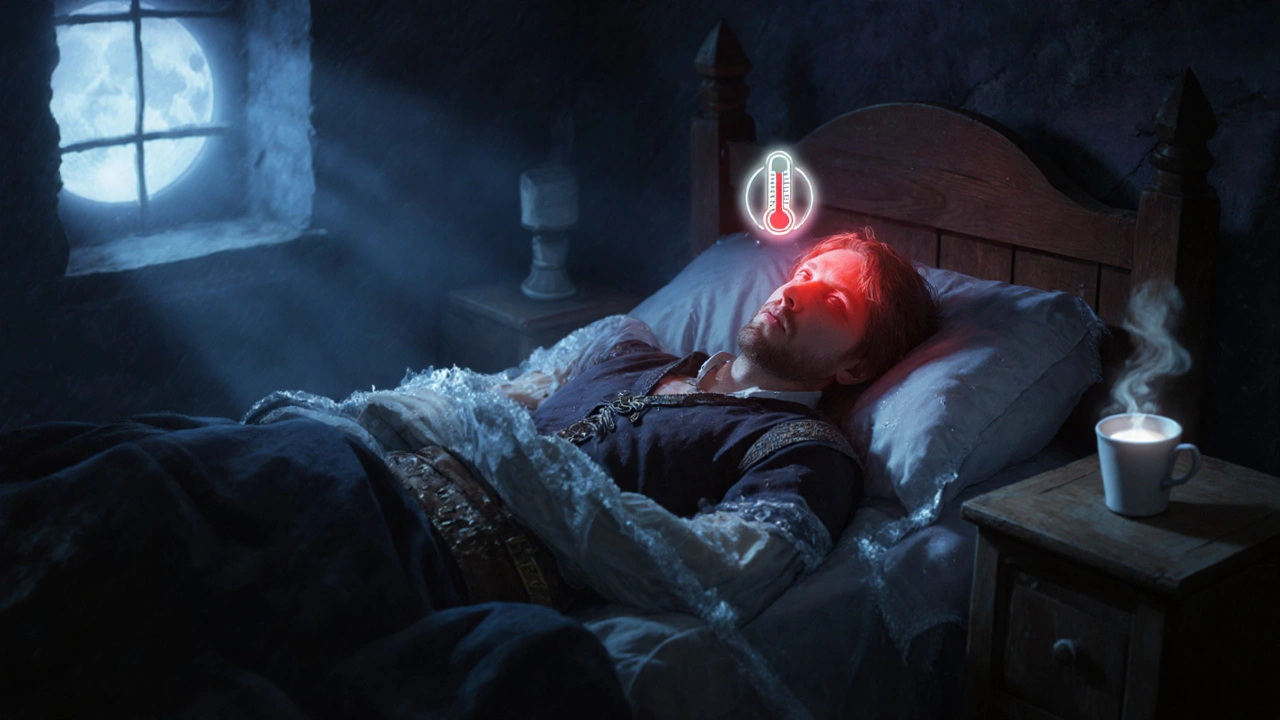Sleep Patterns and What Really Disrupt Them
When talking about sleep patterns, the regular cycle of sleep duration, quality, and timing that keeps our body and mind balanced, most people think only of bedtime routines. But the reality is far broader—stress, illness, and even the drugs we take can twist the clock. Also called circadian rhythm, sleep patterns shape how alert we feel, how well we recover, and how mood‑stable we stay.
One big player is anxiety, a mental‑health condition that spikes worry hormones and makes it hard to unwind. Anxiety triggers racing thoughts that keep the brain buzzing when it should be winding down. Studies show that people with chronic anxiety sleep 20‑30% less and wake up more often. If you’re battling anxiety, fixing your sleep patterns often starts with calming techniques—deep breathing, limiting screen time, and keeping a consistent sleep window.
How Medications and Illnesses Mess With Your Rest
Medications are another hidden factor. Medication side effects, unintended reactions like drowsiness, insomnia, or vivid dreams can flip your sleep patterns upside down. Antidepressants, steroids, and even some flu antivirals may cause insomnia, while antihistamines often make you feel groggy the next day. Knowing which drug influences what part of the sleep cycle helps you and your healthcare provider adjust timing or dosage.
The flu itself is a sleep thief. Flu, an acute viral infection that brings fever, aches, and nasal congestion forces the body into a fever‑driven sleep pattern—short, fragmented bouts that aim to boost immunity. Fever spikes raise metabolic rate, which can disrupt the deep‑sleep phases you need for recovery. Managing fever with medication and keeping the bedroom comfortable can restore a more normal rhythm.
Pregnancy adds yet another layer. Pregnancy, the physiological state of carrying a developing baby brings hormonal shifts, frequent bathroom trips, and growing belly pressure that all interfere with sleep patterns. Many expectant mothers report more light sleep and vivid dreams, especially in the third trimester. Simple tweaks—like propping pillows, staying hydrated early in the day, and limiting caffeine after noon—can ease the disruption.
All these factors—anxiety, medication side effects, flu, pregnancy—share a common thread: they each influence sleep patterns by altering the brain’s chemistry or the body’s physiological state. Understanding the web of connections lets you pinpoint the most likely culprit and take targeted action. Below you’ll find articles that break down each topic in detail, from how specific antivirals affect rest to coping strategies for anxiety‑driven insomnia. Dive in to find the practical tips you need to get your sleep back on track.
Learn how fever interferes with sleep, the biology behind it, and practical tips to improve rest while your temperature runs high.

 Pharmacology
Pharmacology